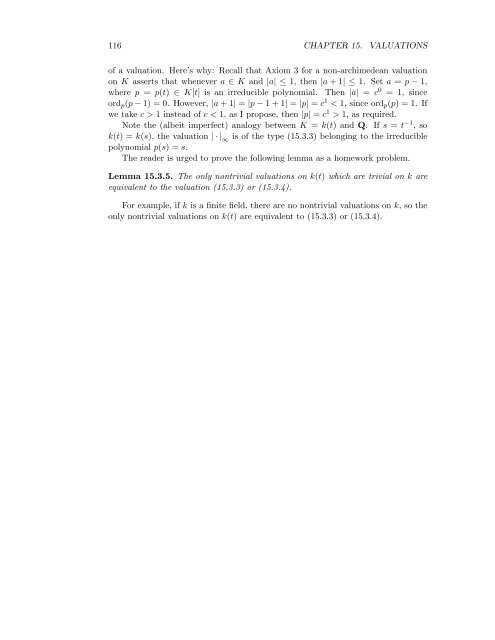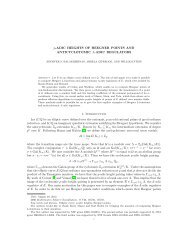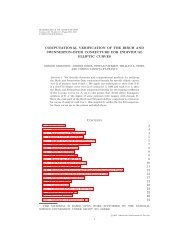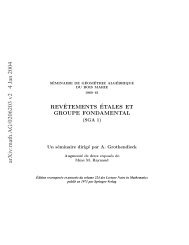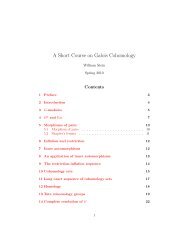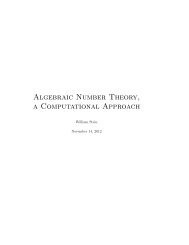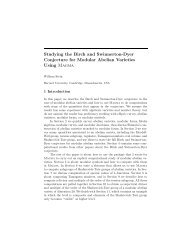A Brief Introduction to Classical and Adelic Algebraic ... - William Stein
A Brief Introduction to Classical and Adelic Algebraic ... - William Stein
A Brief Introduction to Classical and Adelic Algebraic ... - William Stein
You also want an ePaper? Increase the reach of your titles
YUMPU automatically turns print PDFs into web optimized ePapers that Google loves.
116 CHAPTER 15. VALUATIONS<br />
of a valuation. Here’s why: Recall that Axiom 3 for a non-archimedean valuation<br />
on K asserts that whenever a ∈ K <strong>and</strong> |a| ≤ 1, then |a + 1| ≤ 1. Set a = p − 1,<br />
where p = p(t) ∈ K[t] is an irreducible polynomial. Then |a| = c 0 = 1, since<br />
ordp(p − 1) = 0. However, |a + 1| = |p − 1 + 1| = |p| = c 1 < 1, since ordp(p) = 1. If<br />
we take c > 1 instead of c < 1, as I propose, then |p| = c 1 > 1, as required.<br />
Note the (albeit imperfect) analogy between K = k(t) <strong>and</strong> Q. If s = t −1 , so<br />
k(t) = k(s), the valuation | · | ∞ is of the type (15.3.3) belonging <strong>to</strong> the irreducible<br />
polynomial p(s) = s.<br />
The reader is urged <strong>to</strong> prove the following lemma as a homework problem.<br />
Lemma 15.3.5. The only nontrivial valuations on k(t) which are trivial on k are<br />
equivalent <strong>to</strong> the valuation (15.3.3) or (15.3.4).<br />
For example, if k is a finite field, there are no nontrivial valuations on k, so the<br />
only nontrivial valuations on k(t) are equivalent <strong>to</strong> (15.3.3) or (15.3.4).


